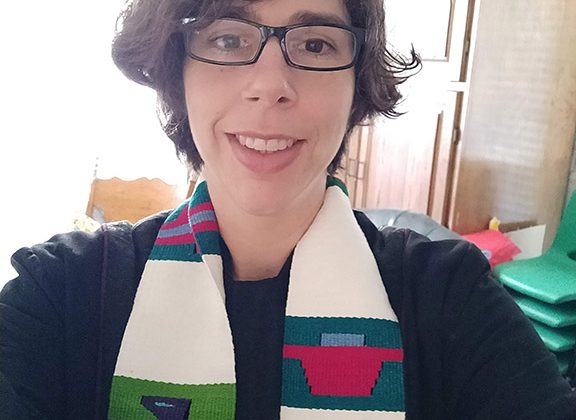Jennings: The meaning of Lent
By Rev. Sabrina Jennings, Eikon church
Ash Wednesday and the whole of Lent was not a part of my faith upbringing. I didn’t have any understanding of the tradition until seminary and didn’t fully appreciate it until my first as a pastor.
That Ash Wednesday, I was invited to join another minister in distributing ashes at a shelter for those experiencing homelessness and at the bus station. In the shelter, we went around the courtyard wearing our robes and holding our dishes with ash. I felt a bit awkward at first. I followed the other pastor until I felt confident enough that I would remember the words.
“Remember that you are dust, the same dust that created the stars, created you. From God you came and to God you will return.”
I spoke these words as my thumb traced a cross on each head and I prayed with them. It was a short moment, but in that space, I got to look into each face and witness the humanity and the mark of the divine that is so often overlooked. We did the same that afternoon at the bus station. We marked with ashes those who clearly had little in way of material possessions, some who didn’t speak English, a bus driver or two. The ashes that marked me were the ashes that marked all of these. A reminder not only of our individual, human finitude, but a reminder of our connectedness; we all come from the same dust.
I, along with millions of other Texans got a head start on lent this year with the winter storm that hit the Sunday night before Ash Wednesday. The effects of the weather forced us into fasting from a selection of electricity, water, heat, food and travel; some being without all of those at once. Some fortunate few escaped the involuntary fasting, but not many. Some were pushed into it in the midst of living lives already deprived of basic necessities. Others had these unmet needs stacked on top of medical conditions, domestic abuse, or other forms of oppression, compounding the already too potent stress in their lives.
My husband and I lost running water the first night. At first, I wasn’t too worried. However, in town the next day, there was no water to be had except for a few bottles from a gas station. A couple of kind neighbors shared some bottles they had. I counted up all we collected, then sat down to create a water ration schedule for the next few days and pray.
To understand lent, you have to understand what lent is leading to. Lent is a period of 40 days leading up to Easter when we celebrate Jesus’ resurrection from the grave and triumph over evil (for those of you who look at your calendar and count, this does not include the Sundays during lent). In the Hebrew scriptures and in the New Testament we hear of lengths of 40. 40 days in the ark that transformed the earth. 40 years wandering in the desert before reaching the promised land. 40 days that Jesus fasted and prayed in the desert before beginning his ministry.
These periods of 40 days or years were times of transformation that led to a rebirth, a new earth, a resurrection. However, it did not come without loss and reckoning with our human limitations. To reach that promised land, to find true life, the people of God, even Jesus himself, went through a giving up of oneself; a holy dismemberment.
It is through this uncomfortable and sometimes painful journey, that we remember and return to the substance of who we are, in our most basic form: the dust that God has breathed life into. Imprinted with the mark of the Divine; part and parcel of one another. We are called to break away from the things that we use to distract, hide or cover up this true form- materialism, professional success, self-centeredness, etc.- through acts of fasting, prayer and giving. We are invited to walk this path so we can return to life, transformed and ready to live in holy community with God and neighbor.
I am fortunate that I have running water again, but being without water for a week and electricity off and on for days I was struck by just how all-consuming and exhausting it is to be without basic necessities. There are many in our community who deal with these kinds of issues on an ongoing basis and many who, because of these storms, will face new long-term challenges. I pray that I, and all of those fortunate enough to recover and have our needs met, will be changed by our experience and live in ways that care for those with less and create a community where all have their needs met.
Rev. Sabrina Jennings is a pastor at Eikon church. Services can be found at www.eikonchurch.comJennings: The meaning of Lent


